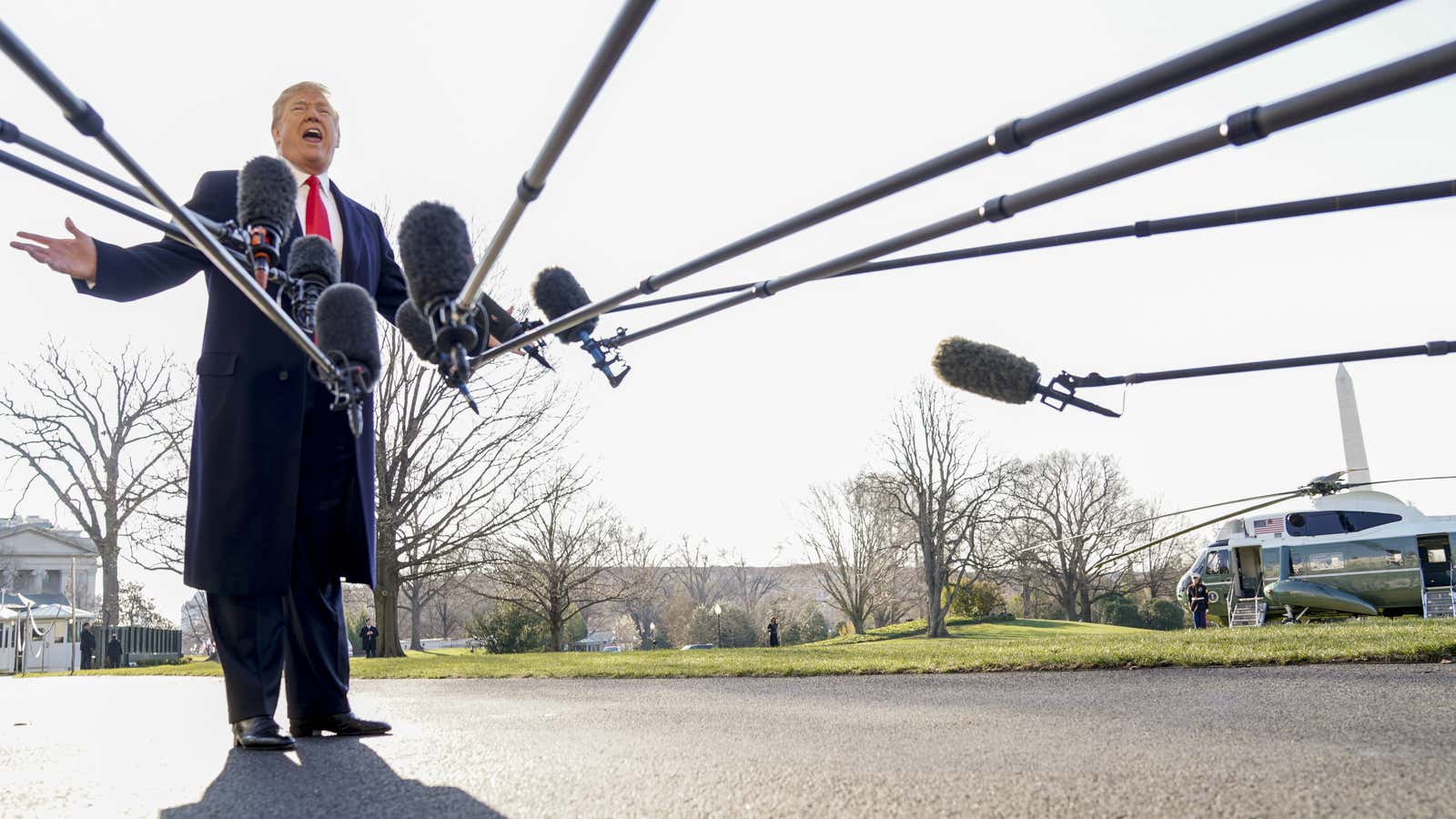For a country that prides itself on democracy, the US has plenty of citizens who think there might be better forms of government. According to a March 13 poll from the Democracy Fund Voter Study Group, one in four Americans think it would be good to have a “strong leader” who does not have to bother with Congress and elections.
While that may seem like a lot, this is actually a drop from previous years. And it is the first time since 1995 that support for “strong leaders” in the US has actually fallen overall.
Nearly 80% of the study’s 5,000 respondents supported democracy overall.
The authors of the survey think the decline of support in strong leadership may be related to the presidency of Donald Trump, and specifically to having had a taste of what a strong leader who doesn’t much listen to Congress could look like.
Support for strong leaders and authoritarianism was stronger among people who didn’t vote in the latest elections. It was strongest among the so-called “missing Obama millions,” or the people who voted for Barack Obama in 2102 and then changed sides to support Trump in 2016.
Political identities that did not clearly correspond to traditional “right” and “left” stances also appear linked to support for authoritarianism: The people most likely to be in favor of a “strong leader” were culturally conservative citizens with economically liberal views. People who mixed culturally liberal views with economically conservative positions also had higher-than-average support for authoritarianism, and lower support for democracy. So did people who considered themselves “moderate” both culturally and economically.
Trump was the candidate of choice for most of the respondents who doubt democracy and wish to have more authoritarian rule: Of Trump voters, 32% wish to have a stronger leader, and 23% don’t think democracy is always preferable. Those who thought democracy wasn’t always the best option also tended to privilege one culture over multiculturalism. Once again, however, lack of strong political conviction was associated with weaker belief in democracy: 29% of people who didn’t vote in the 2016 primaries were in favor of a strong leader and doubtful that democracy would always be the best form of government, and amongst those who didn’t remember who they voted for, 56% were in favor of a strong leader and 73% doubted democracy.
Overall, only about half of poll respondents thought democracy was the best system in all circumstances, including dealing with social disorder and a rigged system.
These sentiments are not uncommon—survey respondents in other liberal democracies tend to show similar interest in non-democratic systems, according to the survey’s authors comparison of results with the 1995-2006 historic data from the World Values Survey (WVS) and a 2017 Pew Research Center report on attitudes toward democracy.
However, US respondents’ support for “army rule” is an outlier at 18%, much higher than the median of other liberal democracies (10%).
